‘Take Care of Maya’ trial: Social worker Catherine Bedy testifies via video deposition in $220 million case
VENICE, Fla. - Jurors in a Sarasota County courtroom watched a video deposition from social worker Catherine Bedy as a $220 million case against Johns Hopkins All Children’s Hospital featured in the Netflix documentary ‘Take Care of Maya’ continued Thursday morning.
The Kowalski family dropped its case against Bedy shortly before the trial began. Maya and her family are suing All Children’s Hospital claiming the hospital medically kidnapped Maya and battered her while in their care.
The battery allegations stem from Bedy and others holding Maya down for unwanted photos and unwanted comforting.
Bedy began her deposition by explaining how she was written up by the hospital after yelling at a co-worker after an attorney asked her if she had ever been disciplined at work.
She went on to described how she met Maya and accused her mother, Beata Kowalski, of having Munchausen by proxy, but admitted she was not an expert on the disease and stated she had only worked with three similar cases.
Bedy said she saw Beata Kowalski demand ketamine for her daughter. Although the hospital says it believed the ketamine treatments were too dangerous, Bedy admitted that the facility did not take into consideration that Maya had been prescribed the ketamine treatments.
The jury was supposed to watch Bedy's deposition earlier in the week, but instead heard from Maya Kowalski’s father, her former attorney and her former physician.
After seeing Bedy’s deposition the jury was dismissed, while the court held a hearing on future evidence in the case. During the hearing, Maya’s father Jack Kowalski was asked about Bedy, and he said Maya couldn’t stand her.
"She stated she placed her on the lap. I never gave consent by the way on that. She stated that she used to come in and slap her leg to see if she was in pain, she said she wanted to adopt her that her mother was in a mental home, so she could be like her mother while in the hospital," he said.
During testimony on Wednesday, attorney Mark Zimmerman, who represented Maya after she was taken into state custody, described how hospital staff treated him when he visited her in the facility.
"I can only say that they didn’t trust me, and they felt that it was their duty to monitor me," he stated.
Zimmerman told jurors he felt as if Johns Hopkins All Children’s Hospital, and, in particular, Bedy, tried to put up barriers for him to access Maya.
"The hospital personnel, and specifically this one social worker, was limiting her freedom…Why that was? I didn’t know. But that was clearly her goal to isolate this child from her family and her lawyer," he said.
"Could they violate the orders Mr. Zimmerman?" asked a defense attorney.
"They were interpreting the orders, so they were complying on the orders based on their interpretation of the orders," said Zimmerman.
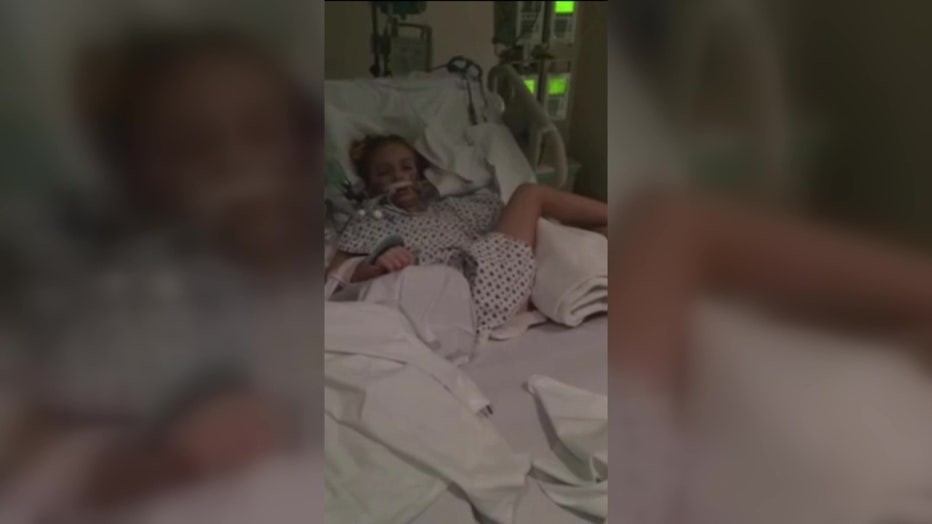
Maya in a hospital bed.
Why was Maya taken into state custody?
Maya had been receiving ketamine treatments for pain associated with Complex Regional Pain Syndrome (CRPS) and her mother insisted she continue receiving ketamine therapy after she was taken to Johns Hopkins All Childrens' Hospital in October 2016 when she was having a flare up of pain.
Her persistence alarmed hospital staff and they called in a report to the Child Abuse Hotline.
They suspected Beata Kowalski, who was a registered nurse, was making her daughter sick.
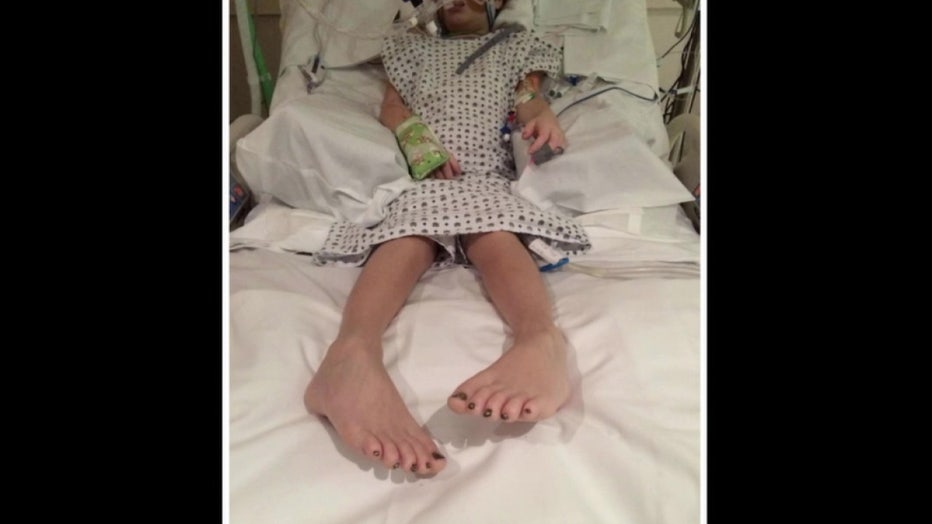
Maya Kowalski in a hospital bed.
When the hospital’s attorney began his opening statements, he noted that several hospital staffers believed Beata Kowalski suffered from Munchausen syndrome by proxy (MBP) and they were trying to protect Maya.
PREVIOUS: ‘Take Care of Maya’ trial: Maya's dad testifies in $220 million case against All Children's Hospital
A judge ordered Maya to be sheltered at the hospital while the child abuse allegations were being investigated. She wasn’t allowed to be discharged to her family or another treatment facility and could not see her mother. A judge ordered her remain at the hospital under state custody.
"We wouldn’t be able to leave without taking Maya. They stated that we’d be arrested," Jack Kowalski, Maya's father, explained on Tuesday.
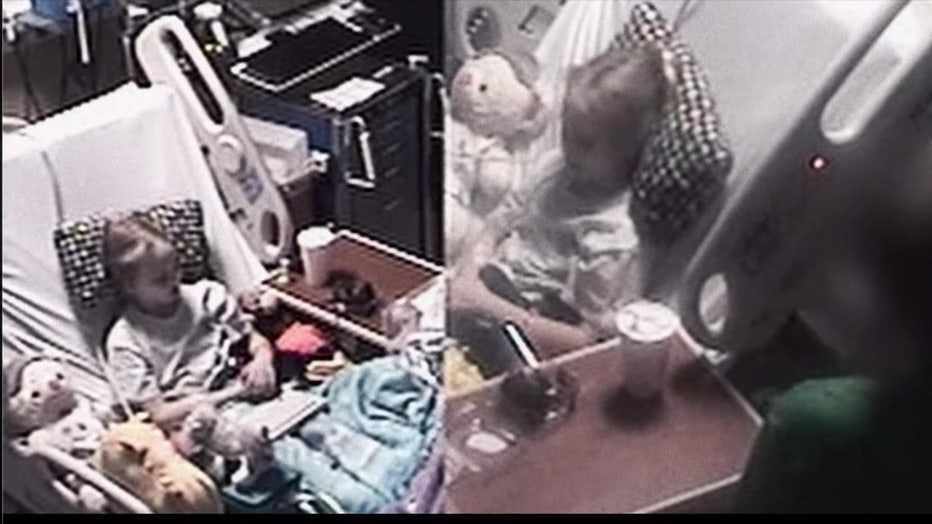
Surveillance images of Maya in a hospital bed.
Jack Kowalski went on to describe how the hospital treated those who tried to visit Maya inside the facility.
"Did you learn through the course of this that they believed Beata was slipping ketamine through the holy water and wafers?" asked Kowalski family attorney Gregory Anderson.
"I know it didn’t happen, but they had all different ideas," said Jack Kowalski.
The Kowalski's attorney argued those theories resulted in Beata Kowalski’s desperation and death by suicide.
"I saw my child deteriorating. Go home, and see my wife deteriorating," Jack Kowalski said.
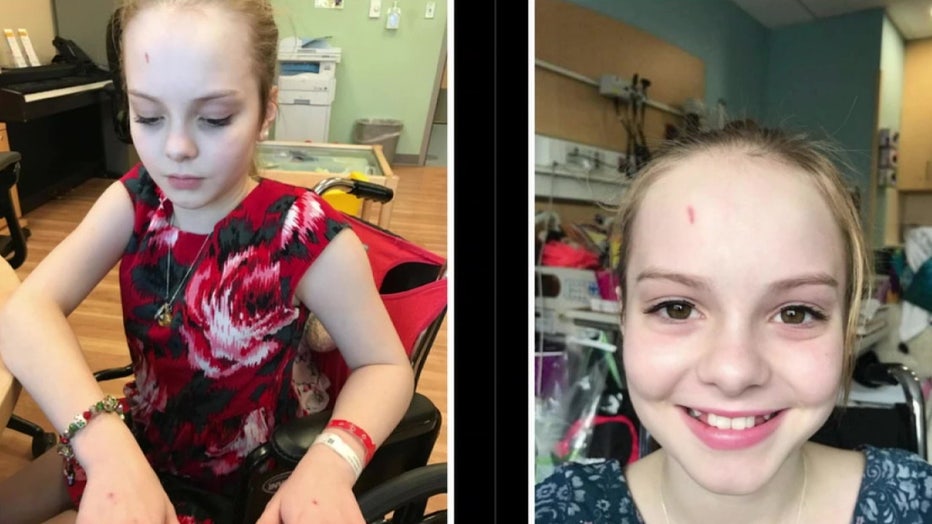
Side by side images of Maya Kowalski as she battled CRPS.
Why is Maya's family suing the hospital?
Beata Kowalski took her own life after being kept away from her daughter for 87 days. The surviving family members are suing Johns Hopkins All Children’s Hospital for $220 million, claiming the actions of the hospital and the Department of Children and Families led Beata Kowalski to die by suicide.
On Monday, jurors were read two notes that Maya’s mother left behind before she took her own life. She left one note for her family and another note for the judge overseeing the custody decision.
In the note, Beata Kowalski said the judge destroyed her family, and marriage and caused the family to go bankrupt because he kept her away from Maya.
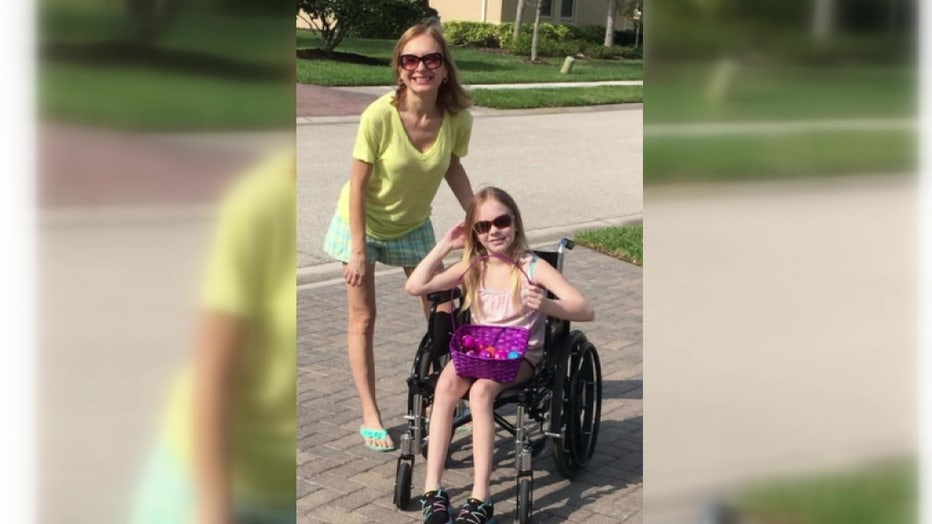
Pictured: Beata and Maya Kowalski
Why was Maya taking ketamine?
Beata Kowalski, who was a registered nurse, learned about CRPS from an infusion patient and began researching the disease. Her research led her to Dr. Anthony Kirkpatrick, who prescribed ketamine treatments.
"He explained the procedure. He talked about how it’s been around for quite a long time. He mentioned it’s used for many things, and it’s safe," Jack Kowalski stated during testimony on Monday. "The side effect when they’re coming out of it is a hallucination for a short time, but then everything is back to normal."
Upon cross-examination of Jack Kowalski, defense attorneys for the hospital questioned the family’s decision to move forward with ketamine coma treatment in Mexico.
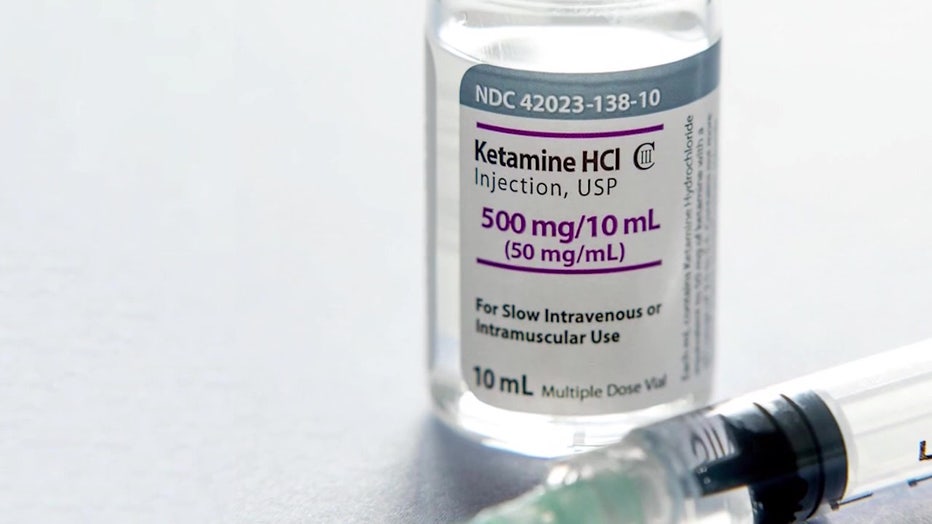
File: Ketamine
"Were you aware that the risk of death from that coma was 50%?" asked Ethen Shapiro.
"There is a risk in every procedure," Kowalski responded.
"I understand that Mr. Kowalski but respectfully there’s a risk and then there’s a risk that’s a coin flip in which your daughter could pass. Did you know it was 50%" Shapiro pressed on.
"They stated it was 50%, but they stated no one every died from that procedure," responded Kowalski.
RELATED: ‘Take Care of Maya’ trial: Doctor who's treated thousands for CRPS testifies on behalf of Maya
Maya’s father told the jury he and his family saw Maya slowly returning to herself following the ketamine therapy.
On Wednesday, Dr. Fernando Cantu, the doctor who administered Maya's ketamine coma, explained that while it will not cure CRPS, it is a treatment for the disease.
However, staff at Johns Hopkins All Children's Hospital disagreed with the ketamine treatments and suspected Maya was a victim of child abuse.
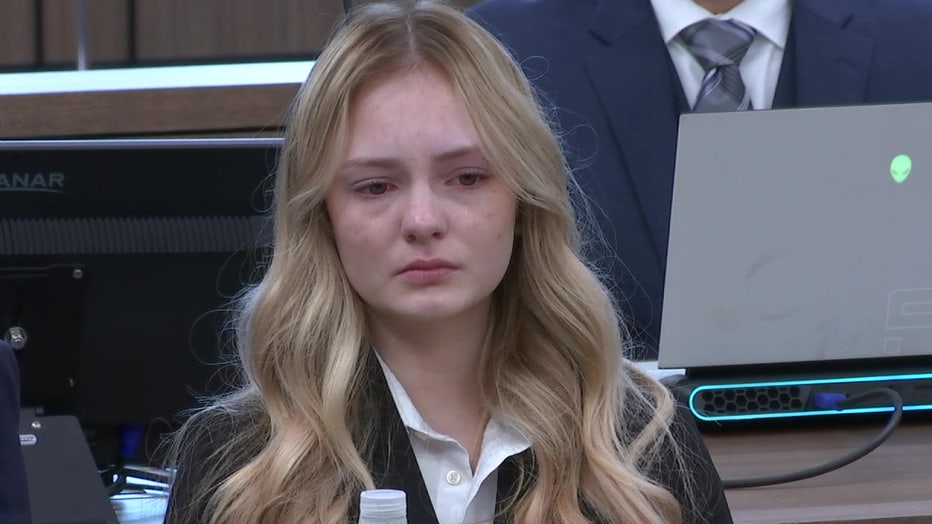
Maya Kowalski listens to opening statements in a $200 million case against All Children's Hospital.
What is Complex Regional Pain Syndrome?
CRPS is a rare pain disease that can follow an injury, and it’s tough to diagnose and sufferers are sometimes accused of faking their pain.
There’s no cure for CRPS and treatments can range from acupuncture and nutrition to physical therapy and massage or ketamine therapy.
The Kowalski family attorney argues that the hospital staff refused to believe Maya had CRPS even after Dr. Kirkpatrick, who did not work for All Children’s Hospital, confirmed her diagnosis.
PREVIOUS: ‘Take Care of Maya’ trial: Testimony continues in $200 million case against All Children’s Hospital
The Kowalski family claims that while hospital staff was accusing them of lying about CRPS and refusing to treat Maya, the facility was billing the family and their insurance more than half a million dollars for that exact cause of illness.
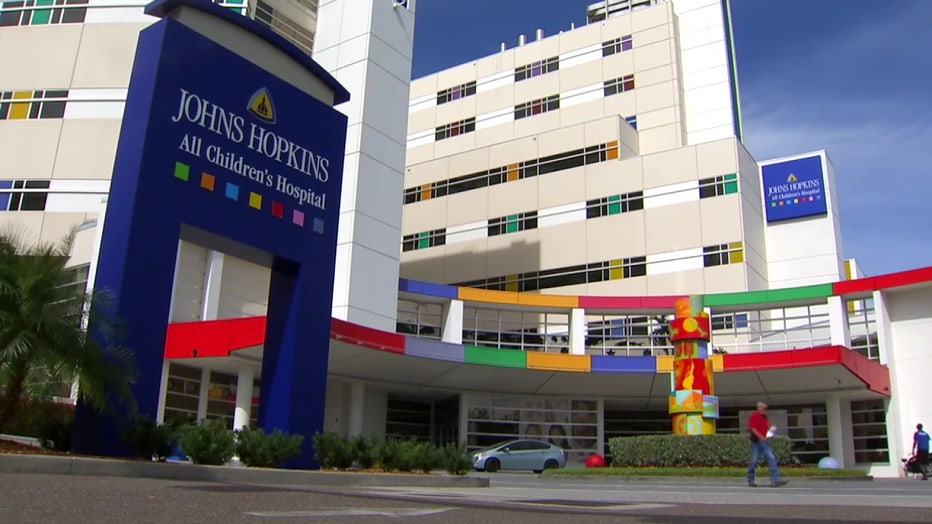
File: Johns Hopkins All Children's Hospital
Jurors will ultimately have to decide whether what happened to the Kowalski family could have been prevented and if the hospital’s actions pushed Beata Kowalski to take her own life.
"We ask in this case for you to consider not only compensatory damages to try to make them whole for these terrible things, but also punitive damages to deter them to punish them and to deter this type of behavior in the future," said Greg Anderson, Maya Kowalski’s lawyer.
The family already settled with the DCF Suncoast Center and child abuse pediatrician Dr. Sally Smith, who once worked for the center, but is no longer employed by the organization.
Dr. Kirkpatrick was expected to take the stand on Tuesday, but the Kowalski family attorney said he is sick and will be unable to testify this week.
Maya is slated to speak to the jury next week.
The trial may last up to eight weeks.

